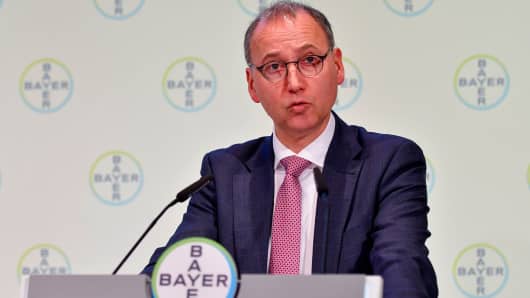Drug-maker Bayer, agreeing to the largest divestiture in American antitrust enforcement history, will sell agricultural businesses and assets worth about $9 billion to chemical giant BASF, clearing the way for approval of its $66 billion acquisition of Monsanto, the Justice Department announced Tuesday.
The assets include Bayer's canola, soybean and vegetable seed businesses, as well as its Liberty herbicide business, all of which currently compete with Monsanto products.
Bayer also agreed to certain "structural divestitures" and to sell off "certain intellectual property and research capabilities, including 'pipeline' R&D projects," according to the Justice Department.
In revealing the settlement it reached with Bayer, the department said the sell-off will "preserve competition threatened by Bayer's acquisition of Monsanto.
Without the divestiture, the department said, the "merger is unlawful."
Germany-based Bayer and St. Louis-based Monsanto are two of the world's biggest agricultural companies, and currently compete against one another to sell farmers seed and crop protection products, the department noted. BASF is the largest chemical producer in the world.
Bayer still is awaiting approval from the governments of Canada and Mexico for the tie-up. The company has until June 14 to close its purchase of Monsanto. After that, Monsanto has the right to withdraw from the deal or ask for a higher price.
Bayer said that it expects to receive the remaining governmental approvals for the merger "very shortly." Bayer also said that it expects to divest itself of the assets named in the settlement in about two months, after which the merger can occur.
The Justice Department said that without Bayer's sell-off of the assets, "the proposed merger would likely result in higher prices, lower quality and fewer choices across a wide away of seed and crop protection products."
Monsanto shares were trading slightly higher, up 90 cents at 127.40 per share, shortly after news of the settlement broke.
Bayer CEO Werner Baumann said, "Receipt of the DOJ's approval brings us close to our goal of creating a leading company in agriculture."
"We want to help farmers across the world grow more nutritious food in a more sustainable way," Baumann said.

